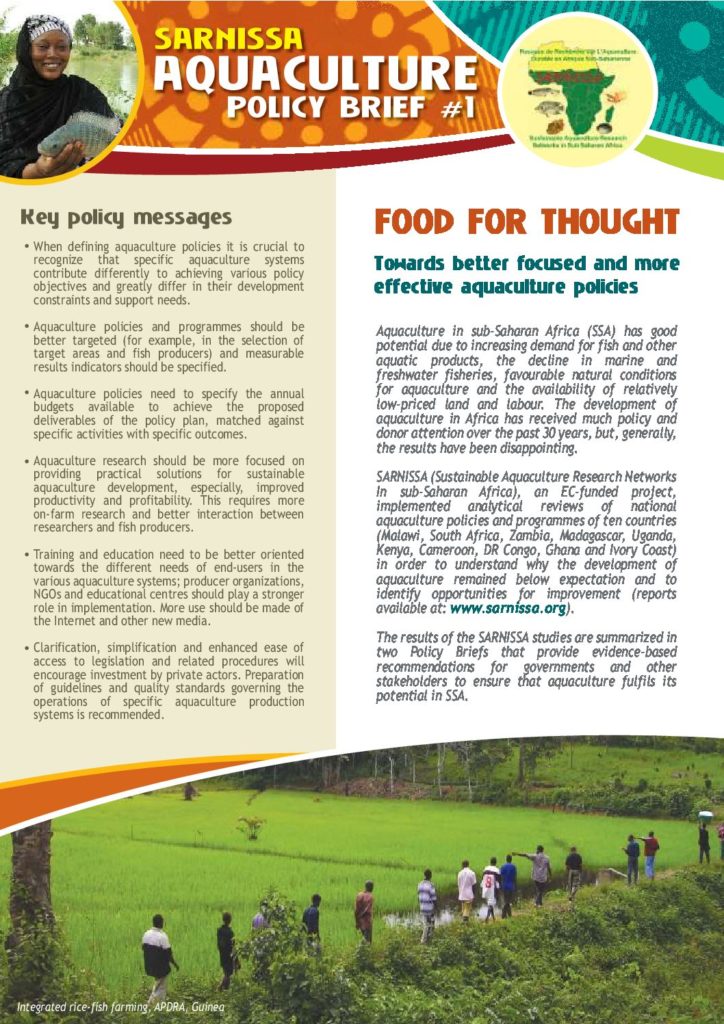Aquaculture is the farming of aquatic organisms, including fish, molluscs, aquatic plants and other aquatic products. Aquaculture in Sub-Saharan Africa has good potential due to increasing demand for fish and other aquatic products, the decline in marine and freshwater fisheries, favourable natural conditions for fish farming and the availability of relatively low-priced land and labour. The development of aquaculture in Sub-Saharan Africa has received much policy and donor attention over the past 30 years, but generally the results have been disappointing.
SARNISSA, an EC funded collaborative research project of European organisations and partners in Sub-Saharan Africa, implemented analytical reviews of national aquaculture policies and development programmes of 10 countries in Sub-Saharan Africa (Malawi, South Africa, Zambia, Madagascar, Uganda, Kenya, Cameroon, DR Congo, Ghana and Ivory Coast) in order to understand why the development of aquaculture remained below expectations and to identify opportunities for improvement. The country studies were implemented by a consortium coordinated by the Aquaculture Institute, Stirling University.
RUAF prepared two policy briefs on aquaculture in Sub-Saharan Africa on the basis of the results of the SARNISSA studies and consultations with local senior officers. The policy briefs provide evidence-based recommendations for governments and other stakeholders to ensure aquaculture fully fulfills its potential in Sub-Saharan Africa.
- Policy brief 1: Food for thought. Toward better focused and more effective aquaculture policies (Eng, Fre)
- Policy brief 2: Building blocks. Specific development perspectives and support needs of three main aquaculture production systems (Eng, Fre)

